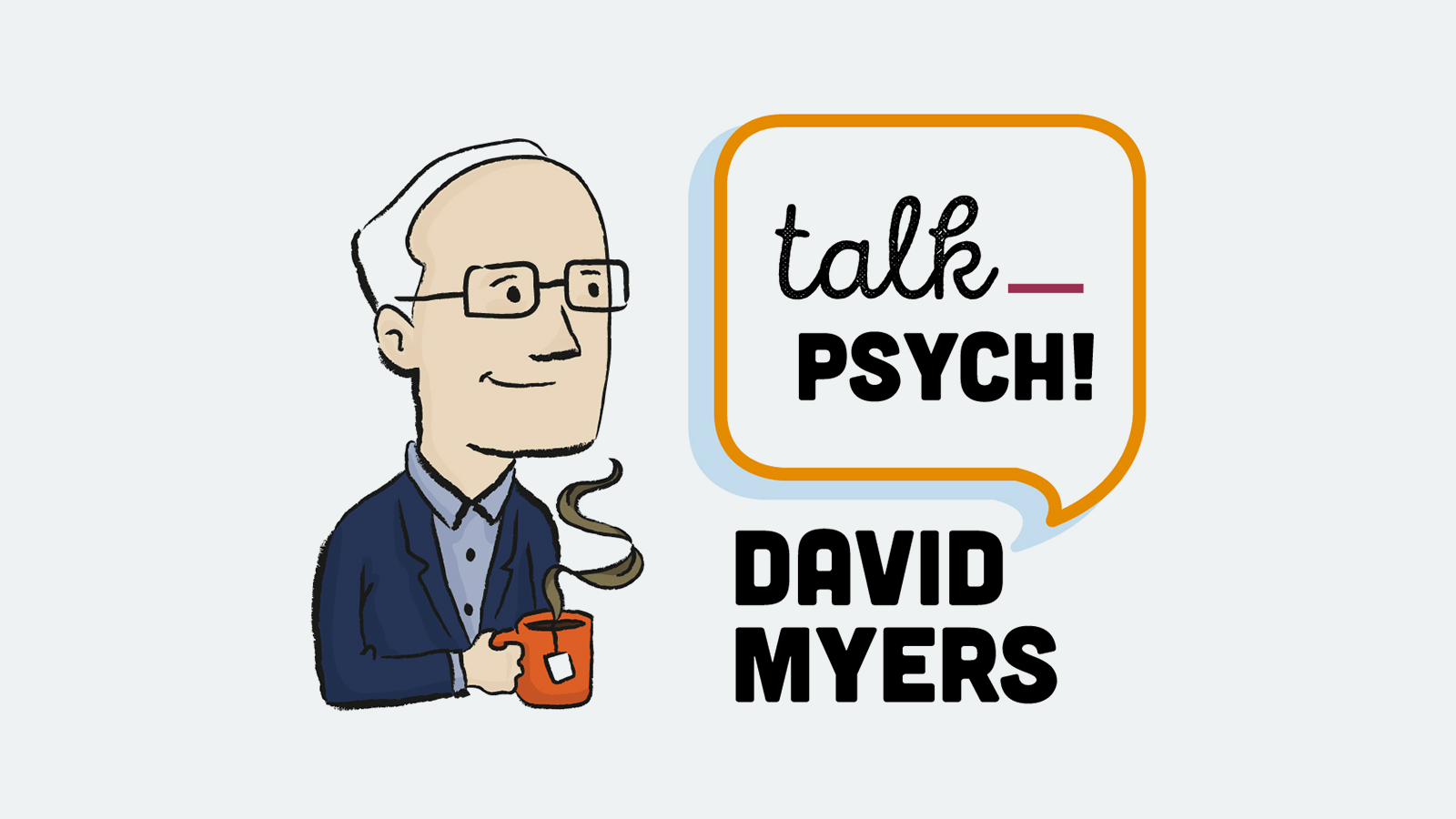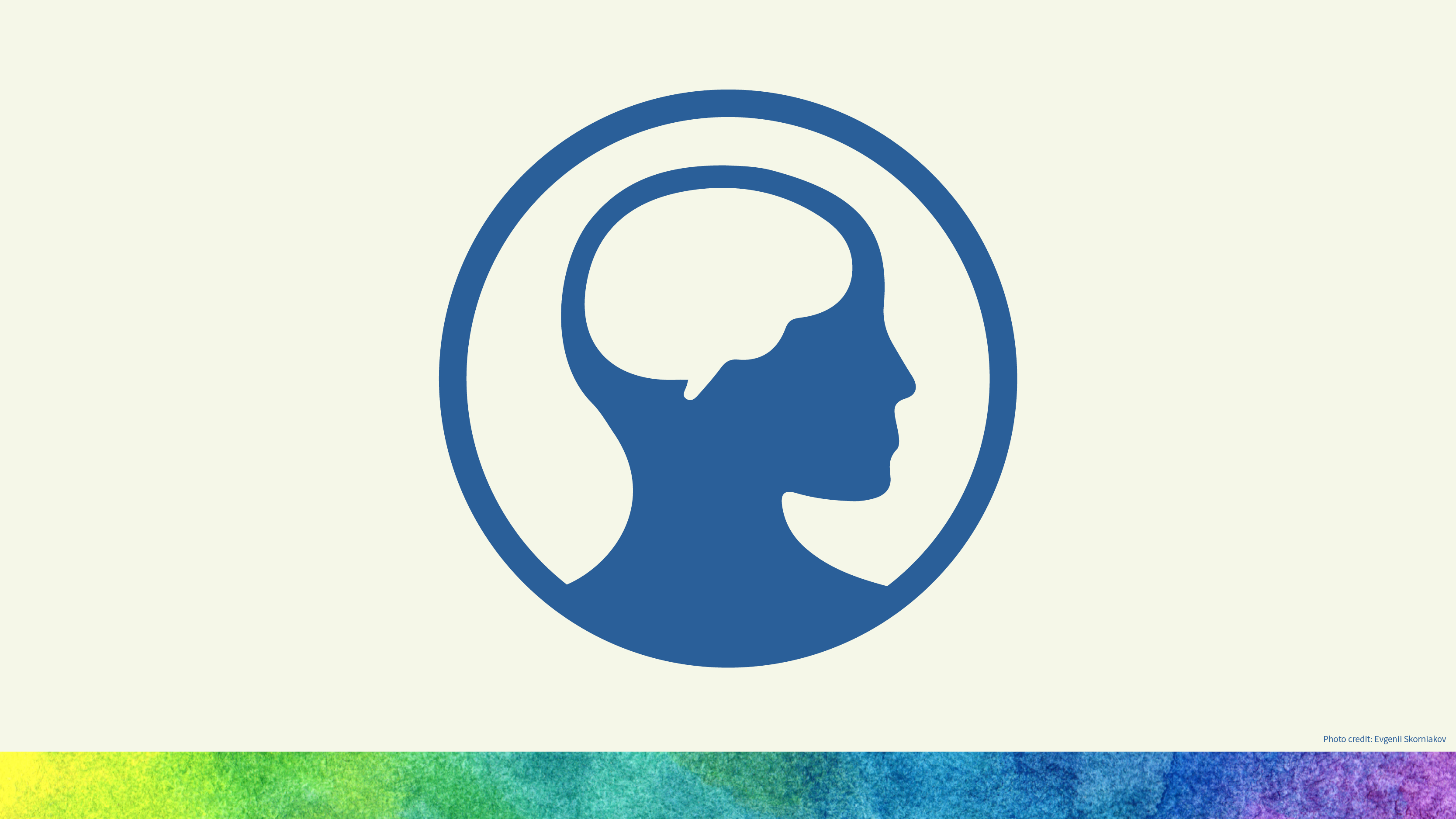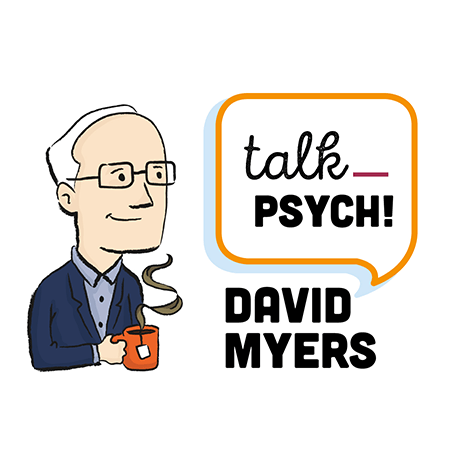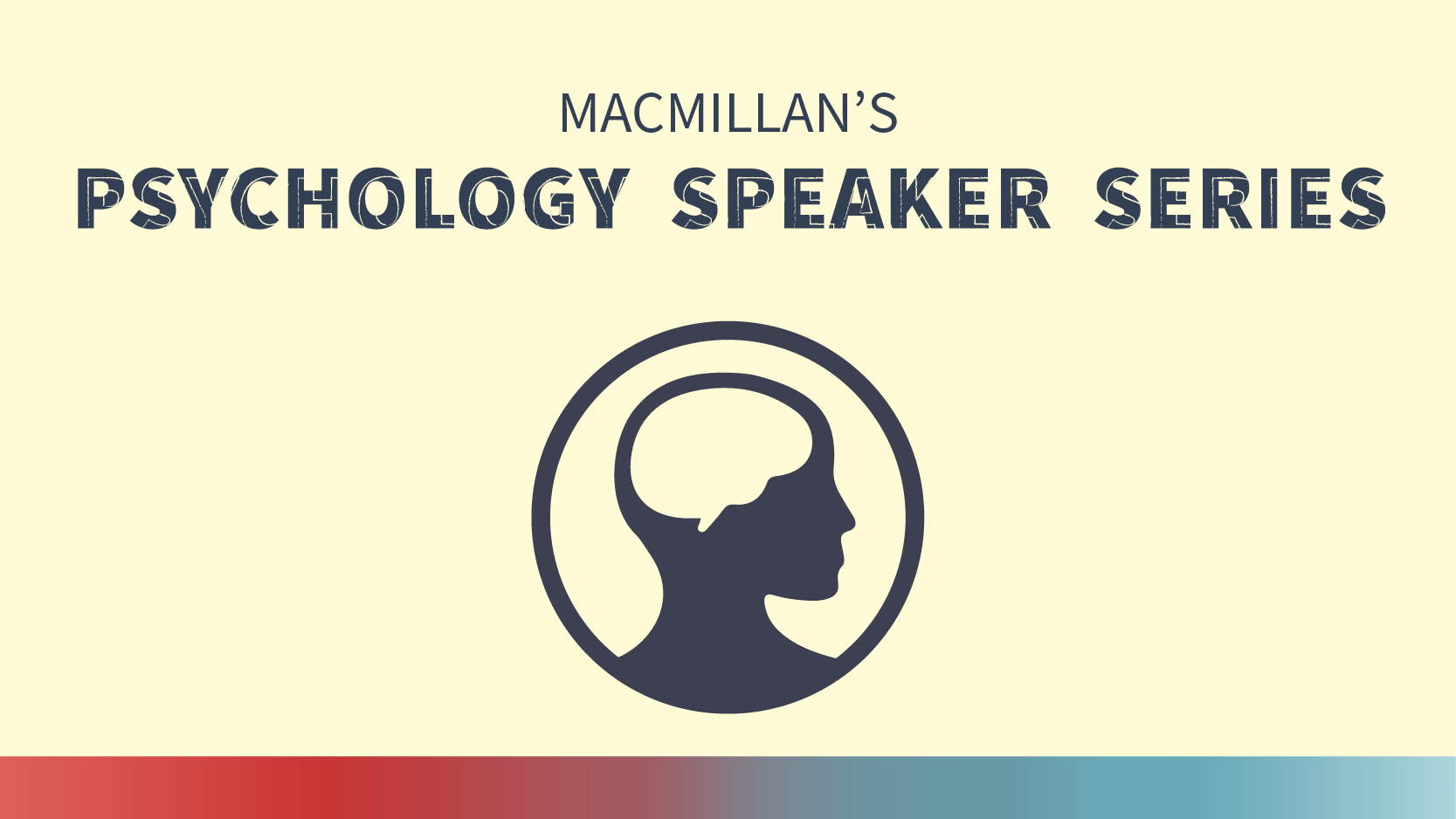-
About
Our Story
back- Our Mission
- Our Leadershio
- Accessibility
- Careers
- Diversity, Equity, Inclusion
- Learning Science
- Sustainability
Our Solutions
back
-
Community
Community
back- Newsroom
- Webinars on Demand
- Digital Community
- The Institute at Macmillan Learning
- English Community
- Psychology Community
- History Community
- Communication Community
- College Success Community
- Economics Community
- Institutional Solutions Community
- Nutrition Community
- Lab Solutions Community
- STEM Community
- Newsroom
- Macmillan Community
- :
- Psychology Community
- :
- Psychology Blog
- :
- Psychology Blog - Page 2
Psychology Blog - Page 2
Options
- Mark all as New
- Mark all as Read
- Float this item to the top
- Subscribe
- Bookmark
- Subscribe to RSS Feed
Psychology Blog - Page 2
Showing articles with label Emotion.
Show all articles
nathan_dewall
Migrated Account
07-20-2016
11:14 AM
Originally posted on April 9, 2014. Most of us have dreamt of having a personal genie. We summon the genie, it grants our wishes, and our lives get better. But we forget that our genie is not bent on improving our lives. The same genie can make you a hero or a villain; grateful or green with envy; cooperative or antagonistic. It all depends on how you ask your question. On the heels of research showing these positive and negative responses to the hormone oxytocin, we have a new genie in a bottle. Instead of rubbing a lamp to summon our genie, we sniff nasal spray. And with oxytocin nasal spray showing impressive benefits in offsetting deficits associated with certain mental conditions, it is time for researchers to get a grip on understanding when oxytocin will inspire us toward benevolence or malice. Oxytocin motivates bonding. But personality traits and situations can bend oxytocin’s influence. For example, people use different strategies to maintain their relationships. Most people act nice, forgive, and adapt to their partner’s needs. Others dominate their relationship partners, pummeling them into submission. Oxytocin might affect these two groups of people differently. The nice guys and gals should continue their efforts to keep their relationship together by acting nice. The dominators, in contrast, might go on the offensive and try to dominate their partners. To test this hypothesis, my colleagues and I randomly assigned college students to sniff either a placebo or oxytocin. The students waited patiently as the oxytocin took effect. While they waited, they completed some uncomfortable activities meant to provoke an aggressive response. They gave a stressful speech and also put an icy bandage on their foreheads. Next, participants reported their aggressive intentions toward a current or recent romantic partner. Some example items were “slap my partner” and “push or shove my partner.” Could the love hormone lead to violence? It could. Oxytocin increased aggressive intentions, but the effect only occurred among those who were predisposed toward aggression. The implication is that aggressive people try to keep their romantic partners close by dominating them. When they get a boost of oxytocin, it triggers an aggressive response. Oxytocin continues to inspire interest and confusion. We’re hard-wired to connect, and oxytocin can help make that happen. But this study shows that it isn’t enough to look at people’s oxytocin levels to know if they will act nice or aggressive. By understanding their personality traits, we can better predict whether the love hormone will promote benevolence or violence.
... View more
Labels
-
Emotion
0
0
4,494
nathan_dewall
Migrated Account
07-20-2016
06:47 AM
Originally posted on November 20, 2014. Have you ever seen a baby so cute you wanted to snuggle it and take a bite out of it at the same time? Ever said to a new niece or nephew, “You’re so cute, I could just eat you up?” Have you cried after a happy occasion, such as crossing the finish line of a race for which you’ve long prepared, or proposing to your girlfriend and getting a yes? Two weeks ago, I experienced these conflicting emotions when I shed several tears after finishing a 100 mile running race. These conflicting concurrent emotions help us maintain emotional balance, according to research from Yale University. An adult’s reaction to an adorable baby is to kiss them and coo at them. But an adult may also pinch, squeeze, and playfully nip at them. Knowing that most people don’t intend to actually harm babies, the researchers designed several experiments to find out why adults respond to them with aggressive behavior. In one study, participants looked at and evaluated photos of different babies, some of whom appeared more infantile than others. The participants said they wanted to care for and protect the infantile babies, but they also reported higher expressions of aggression in response to the babies. Participants were also more likely to feel overwhelmed with very strong positive feelings in response to the more infantile babies. What do these findings tell us? Being overwhelmed by positive emotion produce responses designed to bring us down to our emotional baseline. Ever in need of emotional equilibrium, people will engage in behaviors aimed at leveling off their extreme emotional reactions. So the next time you cry during a happy scene in a movie, laugh nervously, or feel compelled to take a bite out of a cute baby, remember that it is just your body’s way of maintaining emotional balance.
... View more
Labels
-
Emotion
0
0
4,923
Expert
07-13-2016
04:08 AM
Want to add a little psychopathy to your neuroscience or emotion lectures? Or add a little emotion and neuroscience to your psychopathy lecture? Kevin Dutton (University of Oxford), in a 5-minute video, presents a couple versions of the trolley problem and explains the role of emotion in responding to the dilemma. He notes that psychopaths respond in a purely utilitarian way, without emotion getting in the way. In the first video below, Dutton describes a scenario in which five people will die if a trolley continues on its path but where flipping a switch will send the trolley down a different track killing one person. Pause this video at the 49-second mark and give students an opportunity to think about their decision. Ask students to decide, but not reveal their response. If you use a student response system, ask students to click in with, say, A once they’ve made their decision. Return to playing the video. Dutton changes the scenario so that now you are faced with a different decision. The trolley, again, on its current course will kill five people. But now there is a “large stranger” in front of you. If you shove this person to their certain death in front of the trolley, the trolley will stop and the five people will be saved. Pause the video at the 1:38 mark and give students time to mull over their decision. Again, ask students to decide, but not reveal their response. As before, if you use a student response system, ask students to click in with A once they’ve made their decision. Dutton goes on to say that the first decision involves primarily the cerebral cortex. But when it comes to the second decision of whether to physically push someone to their death, for most people the emotion-heavy amygdala becomes involved and the decision is much more difficult. What about psychopaths? The amygdala stays quiet, and psychopaths don’t feel a difference between the two dilemmas. The decision to shove the stranger feels no different than the decision to flip the switch. Video Link : 1665 If you have time and wish to continue the topic, Dutton has another 5-minute video that expands on this one. To introduce it, ask students if there are any benefits to having someone who is willing and able to sacrifice one person, regardless of circumstances, to save many people? If time allows, ask students to discuss in pairs or small groups, and then ask for volunteers to share their responses. Now, play this video. Video Link : 1666 After this, students will have a lot to think about and may not be able to focus on anything else you have to say. It may be best to time this activity so it ends when your class session ends.
... View more
Labels
-
Abnormal Psychology
-
Emotion
-
Neuroscience
1
1
6,412
Expert
01-13-2016
04:00 AM
As a psychology instructor it is clear to you the myriad ways in which psychology can be used to both understand social issues and speak to solutions. In fact, the APA Guidelines for the Major (2013; see below) encourages us to help our students see the same. Debra Mashek (2016) suggests a few assignments that provide our students opportunities to connect psychology with today’s social issues. Integrative essay The instructor chooses three articles (interesting, nifty methodology, and not too difficult for students to understand – but on the surface may not have anything obviously to do with each other), and assigns one of those articles to each student, i.e. 1/3 of the class gets article A, 1/3 gets article B, and 1/3 gets article C. Each student writes a one-page summary of their assigned article and brings that with them to class. The class breaks up into groups of three, where the groups are composed of students who have all read different articles. In a jigsaw classroom format, the students tell the others in their three-person group about their article. Students then “articulate an applied question that invites application of ideas from all the articles.” Each 3-person group then co-authors a short paper (two to three pages) that identifies their applied question and how each of the three articles speak to that question. Persuasion research activity Right after Hurricane Katrina, Mashek decided she wanted her Intro Psych students to experience psychological research firsthand while also contributing to the relief effort. Mashek gave a brief lecture on foot-in-the-door, door-in-the-face, and reciprocity. She randomly assigned ¼ of students to foot-in-the-door, ¼ to door-in-the-face, ¼ reciprocity (she gave these students lollipops to hand to people before asking for a donation), and ¼ to a command condition (“give money”). During that same class period students were sent out in pairs to different areas of campus to return an hour later. Thirty-five students collected $600. Students reported a greater connection to the victims of Katrina after they returned than they reported before they left. Mashek used this experience as a leaping off point for discussing research methodology in the next class session. Current headline classroom discussion Pick a current headline. Break students into small groups, perhaps as an end of class activity, and give them one or two discussion questions based on the current chapter you are covering that are relevant to the headline. For example, if you are covering the social psychology chapter in Intro Psych, give students this headline from the January 9, 2016 New York Times: “Gov. Paul LePage of Maine Says Racial Comment Was a ‘Slip-Up’.” This is a short article, so you could ask students to read the article itself. Sample discussion questions: (1) What evidence is there of ingroup bias? (2) Do Gov. LePage’s comments illustrate stereotyping, prejudice, and/or discrimination? Explain. If time allows, student groups can report out in class. Alternatively, this could be a group writing assignment or a scribe for the group could post a summary of the group’s responses to a class discussion board. Students will gain an appreciation of the scope of psychology and how it is relevant to today’s social issues. This activity throughout the course should help students, after the course, to continue to see psychology at play. The APA Guidelines for the Major (2013) include these indicators related to social issues: 1.3A Articulate how psychological principles can be used to explain social issues, address pressing societal needs, and inform public policy 3.3c Explain how psychology can promote civic, social, and global outcomes that benefit others 3.3C Pursue personal opportunities to promote civic, social, and global outcomes that benefit the community. 3.3d Describe psychology-related issues of global concern (e.g., poverty, health, migration, human rights, rights of children, international conflict, sustainability) 3.3D Consider the potential effects of psychology-based interventions on issues of global concern American Psychological Association. (2013). APA guidelines for the undergraduate psychology major: Version 2.0. Retrieved from http://www.apa.org/ed/precollege/undergrad/index.aspx Mashek, D. (2016, January 4). Bringing the psychology of social issues to life. Lecture presented at National Institute on the Teaching of Psychology in Tradewinds Island Grand Resort, St. Petersburg Beach. Seelye, K. Q. (2016, January 9). Gov. Paul LePage of Maine Says Racial Comment Was a 'Slip-up'. The New York Times. Retrieved January 9, 2016, from http://www.nytimes.com/politics/first-draft/2016/01/08/gov-paul-lepage-of-maine-denies-making-racist-remarks
... View more
Labels
-
Abnormal Psychology
-
Cognition
-
Consciousness
-
Developmental Psychology
-
Emotion
-
Evolution
-
Gender
-
Genetics
-
History and Systems of Psychology
-
Industrial and Organizational Psychology
-
Intelligence
-
Learning
-
Memory
-
Motivation
-
Nature-Nurture
-
Neuroscience
-
Personality
-
Research Methods and Statistics
-
Sensation and Perception
-
Social Psychology
-
Stress and Health
0
0
8,698
Topics
-
Abnormal Psychology
5 -
Achievement
2 -
Affiliation
1 -
Cognition
9 -
Consciousness
13 -
Current Events
6 -
Development Psychology
9 -
Developmental Psychology
12 -
Drugs
4 -
Emotion
19 -
Evolution
1 -
Gender
4 -
Gender and Sexuality
3 -
Genetics
2 -
History and System of Psychology
4 -
History and Systems of Psychology
2 -
Industrial and Organizational Psychology
15 -
Intelligence
1 -
Learning
26 -
Memory
10 -
Motivation
4 -
Motivation: Hunger
1 -
Nature-Nurture
2 -
Neuroscience
15 -
Personality
11 -
Psychological Disorders and Their Treatment
9 -
Research Methods and Statistics
41 -
Sensation and Perception
15 -
Social Psychology
45 -
Stress and Health
5 -
Teaching and Learning Best Practices
30 -
Thinking and Language
9 -
Virtual Learning
7
- « Previous
- Next »
Popular Posts








